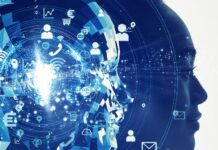technological shift in the way music is consumed and distributed, we are now on the precipice of another major revolution certain to disrupt the music industry. Artificial intelligence, or “AI” as it is more commonly referred, has quickly emerged as a game changer across a myriad of industries and music is no exception. AI offers the promise of innovative opportunities and avenues for music creation, publishing, recording, synchronization, distribution, consumption and revenue generation. However, these opportunities also present significant, novel challenges for music rights holders and users alike—and the legal challenges have just begun.
AI is not a new concept. Digital music service providers and platforms have been using machine learning for years to, among other things, personalize playlists and make recommendations for their users based on listening history, detect copyright infringement and automate aspects of music editing and production. However, over the past several years, AI has grown smarter, more accurate and efficient by leveraging its access to massive datasets and immense computing power. As a result, music recommendation and search capability has significantly improved.
Established and emerging artists can benefit from these acute recommendation systems that suggest new artists and songs to listeners based on their past musical selections and music genre preferences. Songwriters can use AI to overcome writer’s block, simulate voices or create new sounds previously impossible to create with instruments. AI tools can also assist labels and publishers in the identification of new talent by analyzing patterns and learnings from prior music that went viral or artists that achieved success. Investment in these technologies by top labels is indicative of their potential to streamline and improve the artist discovery process, as well as the possibility for increased transparency in rights allocation and revenue tracking.
The application of AI is going even further, however, to actually enable the creation of new music based on pre-existing songs, which raises a host of legal issues relating to the ownership of such AI output, and whether the data from which the AI platform was trained amounts to infringement (or depending on the manner in which the AI gathers or scrapes information













